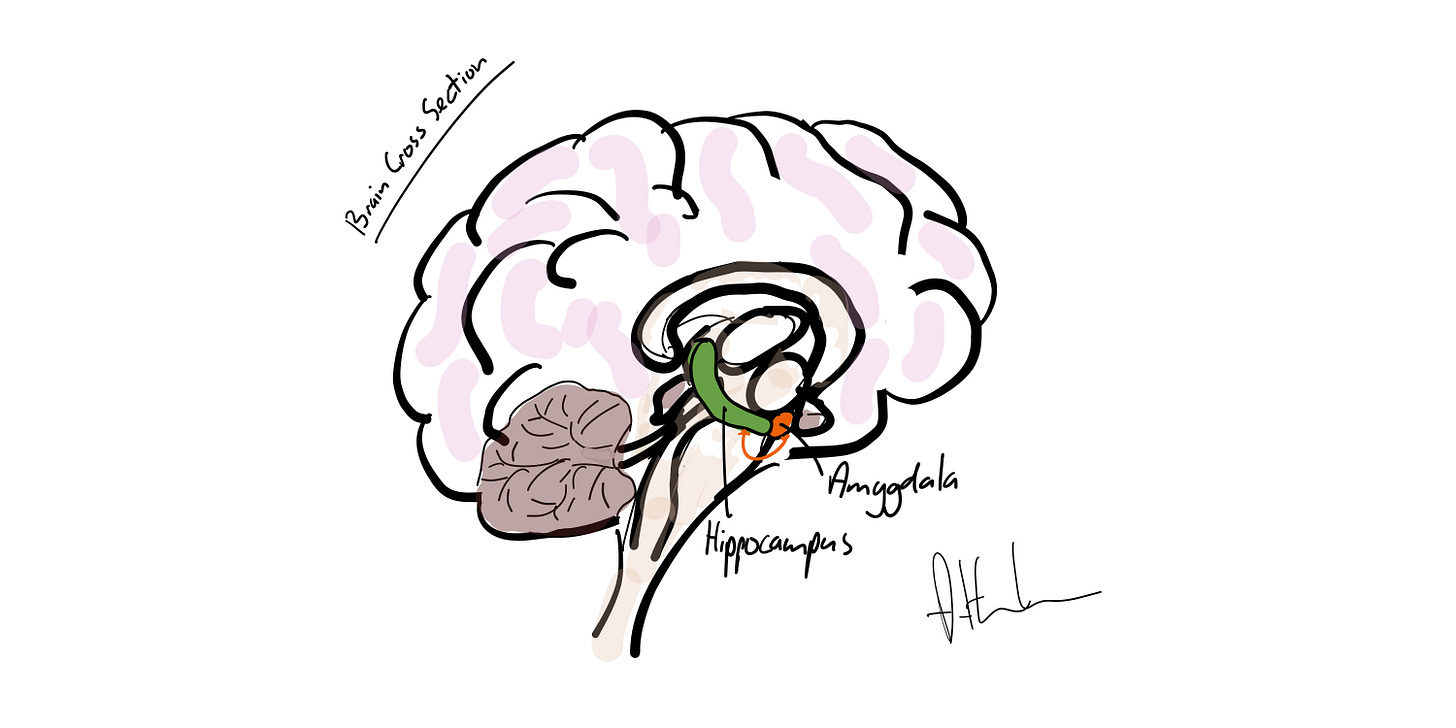Daily Brain Snack: Stress Changes Brain's Reward Signalling
Circuit to reward memories shown to increase resilience
Isn’t stress the opposite of reward?
Kind of yes. But this research is more fascinating because it gives clues to resilience and recovering or managing stress and the circuits involved in this.
Oooh, tell me more!
Let me take you through this research - with a common caveat that this was in mice but nevertheless fascinating.
Do mice feel stress the same way we do?
Yes, and no. But they exhibit many of the symptoms in surprisingly similar ways: in this research they investigated the difference between mice who bounced back from traumatic social stress. So in the case of mice it might be being paired up with a stronger and more aggressive mouse.
After repeat exposure the mice show symptoms of depression, listlessness, and social withdrawal, for example. But some mice bounce back from this while others don’t so what is happening in the brain?
And what is happening in the brain?
Well, first off, their was strange reward related behaviour in the less resilient mice. Normally mice love sweet things and if given the choice of sweet water or plain water, will always go for sweet water, like many of us human beings. Basically opting for the more pleasant option (they don’t worry about their waistline or teeth like we might).
However, those less resilient mice who showed signs of depression after the stress ended up becoming obsessed, had difficulty choosing, and often opted for the plain water.
Oh, and the sweet water would also make them feel better!
Yes, precisely - so these researchers, Xia et al. of the University of California, looked at what was happening in the brain and here we find the answer.
They saw that the amygdala which is a key emotional centre and related to stress (and fear and threat) had different communication patterns to the hippocampus - considered a key memory centre in the brain. It was weaker in the less resilient mice - it almost seemed like the positive memory of sweet water was weakened.
And what can be done about this?
That is precisely what they tried next - to manipulate this circuit. Xia et al. managed to trigger higher activation in this circuit by using targeted chemicals in the precise regions and lo and behold their behaviour changed - they chose the sweet water and their brains looked more resilient.
So, activating this circuit changes stress induced depression like symptoms and makes you more resilient?
In mice, yes - it could be an interesting target in human beings also - more research will have to show that.
So resilience sits between your amygdala and hippocampus
Between stress and reward - so remember the good things in life.
Reference
Frances Xia, Valeria Fascianelli, Nina Vishwakarma, et al.
Understanding the neural code of stress to control anhedonia.
Nature, 2024
DOI: 10.1038/s41586-024-08241-y




